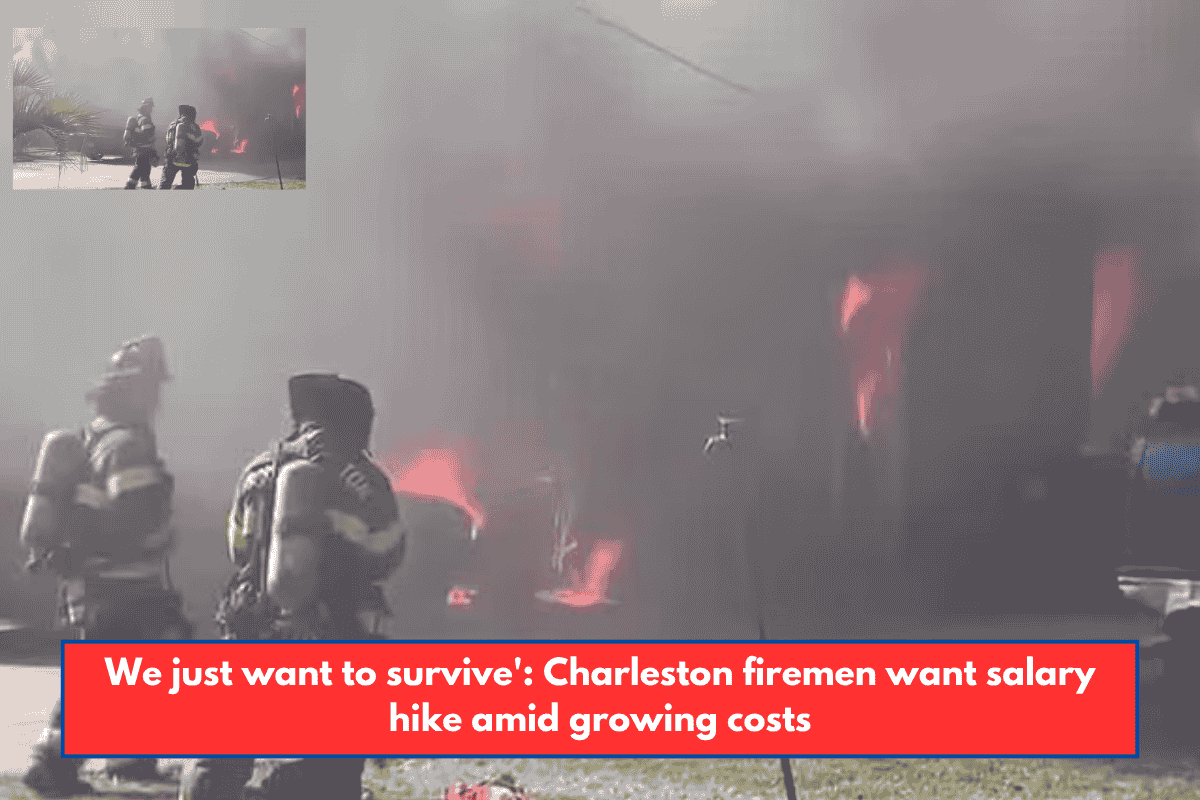Charleston, South Carolina – Charleston firemen are demanding for better compensation, claiming that their present income is insufficient to cover the cost of living in the city they serve.
Firefighters around the city, including those at Station 18 on Daniel Island, work 56-hour weeks, which usually include two 24-hour stints. That’s an additional 832 hours per year over a regular 40-hour workweek. But they claim their remuneration does not match their workload.
According to the Charleston Firefighters Association, long hours and low pay make it difficult to recruit and retain new employees. According to the group, 171 members have willingly left the department during the last seven years.
The movement for increased pay began around 2020, when firemen began to feel they couldn’t keep up with the rising cost of living in Charleston.
“We’ve pushed for this every year since COVID. Home prices have risen, as has rent; the average monthly rent is now close to $2,000. Charleston Firefighters Association President John Baker emphasizes the importance of continuing effort to ensure that their members can afford to live in the area.
Former Mayor John Tecklenberg responded by proposing a compensation review for first responders in 2022. Baker claims that the study was conducted in 2024, but the approval procedure has taken longer than expected.
Charleston firefighters benefit from the department’s step-pay program, which allows them to earn more based on their years of service and education. In 2024, a first-year firefighter with a high school diploma earned around $16.79 per hour, or just under $51,000 annually.
However, the rising expense of living in Charleston makes it harder to stretch. According to Trident United Way’s 2025 ALICE Report, a Charleston County family of four need more than $92,000 per year to meet their basic needs.
“I wish we could compare the true cost of living in cities rather than having this arms race in which one municipality pays more than another. Because doing so reduces the cost to cents on the dollar. So, if we can truly compare ourselves to the actual cost of living in the area that we serve, I believe it will be more advantageous,” Baker adds.
According to SmartAsset, a New York-based financial technology company, a family of four in South Carolina requires $208,333 in annual income to live comfortably, which is more than double the state’s $103,821 median income for a family of the same size, according to U.S. Census Bureau data from May 2025.
According to Baker, the existing pay scale makes it difficult for many firemen to buy basic necessities in the areas they serve.
“As firefighters, we know that we’re not in it to become rich or to make some type of crazy amount of money per year,” Baker tells me. “But what we are advocating for is to be able to survive in the area that we live and work in by having appropriate pay and being able to have those luxuries of being able to make rent and pay groceries and day care.”
Baker adds that this means longer drives to and from work from nearby areas and less time spent with their family. In May, the agency implemented a “1-3-2-3” shift plan, where firemen work one day on shift, three days off, or two days on and three days off. Baker claims that, while the new timetable is still in trial mode, they are already witnessing significant benefits.
“One member was able to save eight days of car travel time by switching to this plan. However, we have many members who live in Summerville. We have a lot of members who reside farther away. As rents in Charleston continue to rise, residents are forced to discover new ways to survive and relocate. So it’s simply more time. It is farther away from family. And it’s a common battle for many. “But what else can they do if they can’t afford to live in this area?” he asks.
Baker believes that without adjustments, the agency risks losing more experienced firemen, which might have long-term consequences.
“What I do think will happen over the next couple years is if we continue to lose people that’s just average years of service that are continuing to decline,” according to him. “What does that mean?” So there are fewer people on the job with tenure and experience.”
He said that, while Charleston’s fire service remains robust, the loss of competent firefighters may strain operations in the long run.
“The service is going to continue to be top-notch,” Baker tells me. “I feel we have some of the best firefighters in the country right here in Charleston, and our auto-aid partners agree. But if we continue to lose them, what will the future hold?”
Baker suggests that viable remedies include holding a referendum or shifting to a 42-hour workweek, which he claims will promote work-life balance and assure equitable hourly compensation.
This campaign comes as the nearby Town of Mount Pleasant approved a 4% salary rise for its firefighters and police officers on Tuesday.
The City of Charleston claims its pay analysis was postponed due to a citywide Human Resources software transition last year. According to city officials, the study is back on schedule and is expected to be completed early next year.
The city also claims it is working on an aggressive affordable housing policy that will directly assist first responders and other important workers. The proposal aims for the construction of around 3,500 affordable housing units over the following seven years.











